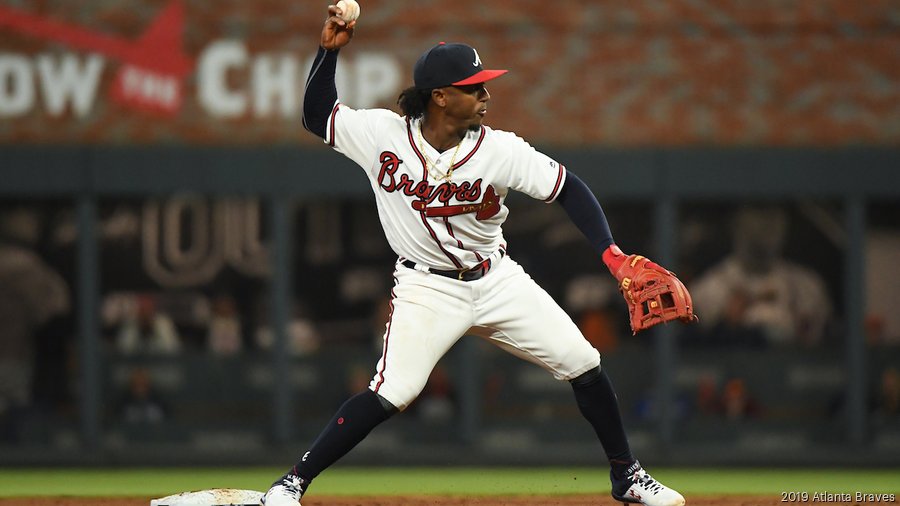The Atlanta Braves, coming off an NL East division title and loaded with young talent, are moving to lock up that talent for the next decade.
The Braves announced Thursday that they have signed 22-year-old All Star second baseman Ozzie Albies to a seven-year, $35 million contract extension with options for two additional years.
Albies hit .261 with 24 home runs and 14 stolen bases in 2018 and made the NL All-Star team, and he’s hitting .327 with a .389 on base percentage so far this season.
The announcement came just nine days after the Braves signed Albies’ close friend, 21-year-old Ronald Acuña, to an eight-year, $100 million deal with two option years.
Together, the two extensions mean the Braves can, if they choose, keep both dynamic young stars in the team’s lineup until they are 31 years old.
The Braves could move to lock up more of the team’s young stars, with 25-year-old shortstop Dansby Swanson and 27-year-old Mike Foltynewicz among the possibilities.
The twin contract extensions come as baseball teams have signed a number of the game’s top stars to extensions, from veterans like Colorado superstar Nolan Arenado and Los Angeles’ Mike Trout, considered the game’s best player, to youngsters like Tampa Bay’s Blake Snell, Boston’s Xander Bogaerts and Houston’s Alex Bregman.
In the last two offseasons, Baseball free agents have struggled to reach deals with new teams as owners have soured on the value of players over 30. Superstars Bryce Harper and Manny Machado eventually signed big contracts this spring, but superstar closer Craig Kimbrel remains unemployed, as does starter Dallas Keuchel.
Seeing that trend, many players have chosen to sign contract extensions with their own teams rather than gamble on a big-money payoff in free agency.
While both the Acuna’s and Albies’ contracts have been criticized as potantially bad deals for the players, both players cited their desire to obtain financial security for their families and to play with the Braves long-term.
Under baseball’s collective bargaining agreement, players receive little more than the minimum salary in their first three years, then are eligible to receive substantial raises under the arbitration system for three more years. So, players must play for six years before they can become free agents. With teams now more cautious about giving big free-agent contracts to players above 30, many players are choosing the security of millions of dollars in guaranteed money rather than risk injury or subpar performance for the diminishing chance of free-agent riches.
The Braves, 7-5 so far this season, play the New York Mets at SunTrust Park tonight in the second game of their four-game series.





